SWEDISH SOUTH ASIAN STUDIES NETWORK
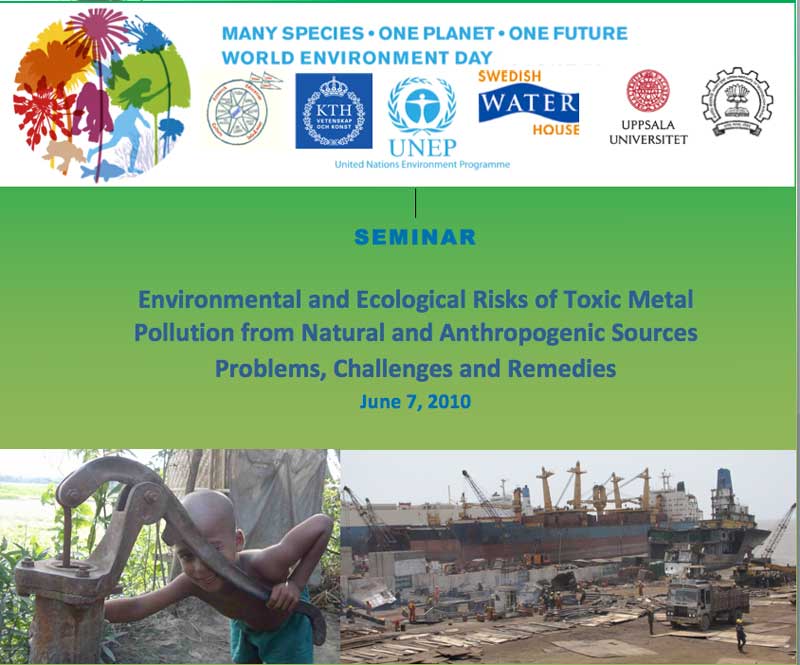
Summary of Seminar on
”Environmental and Ecological Risks of Toxic Metal Pollution from Natural and Anthropogenic Sources – Problems, Challenges and Remedies”
held on June 7th, 2010
at the Dept. of Land and Water Resources Engineering, Royal Institute of Technology (KTH), Stockholm
See the full programme
Contamination of toxic trace metals in coastal environment, rivers and lakes as well as ground water has been a persistent threat in the underdeveloped and developed world. The one-day seminar organized at the Royal Institute of Technology (KTH) in Stockholm was sponsored by a variety of institutions including KTH, University of Uppsala, and Indian Institute of Technology Bombay (IIT B). The United Nations Environment Programme (UNEP) as well as Swedish Water House and Swedish South Asian Studies Network (SASNET) were the co-organizers of the event. The seminar was organized to mark the World Environmental Day 2010 which had the theme: “Many Species One Planet One Future“.
Among the two major routes which contaminate the potable water as well as marine water resources with a variety of toxic trace metals are:
- Natural biogeochemical processes bringing (say) arsenic (As) into natural waters and
- Disposal of partially treated or untreated industrial and municipal wastewaters containing important heavy metals which are capable of imparting toxicity to humans and natural environment.
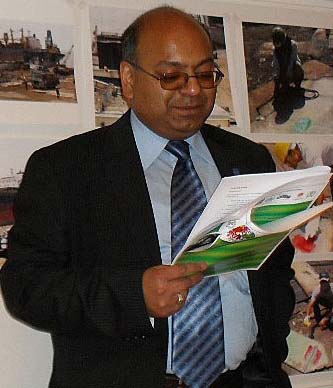 |
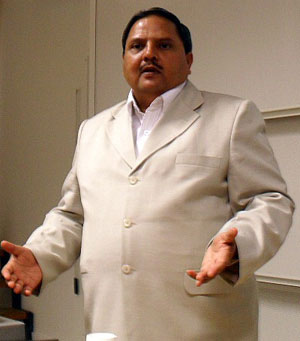 |
| Prosun Bhattacharya and Shyam R Asolekar at the KTH workshop. Photo: Arifin Sandhi | |
It was concluded that the occurrences and mobility of toxic elements such as arsenic, lead, zink, fluoride, are present in water resources show spatial and seasonal variability. Their concentrations in ground- and surface water environments are controlled by the natural biogeochemical processes which often include redox transformations in the near surface land and aquatic environments. Diagnosis of the problem and technical solutions for addressing these public health threats posed by the toxic metals as well the enabling policy framework was discussed at the seminar.
The industrial sectors such as electroplating metal finishing, dyestuff and pigment manufacturing, textile dying and printing, tannery, homogenous catalysis using heavy metals in chemical industry, leachates from municipal solid wastes landfills and hazardous wastes landfills and processing and disposal of electronic wastes has been known to be introducing toxic trace metals into coastal marine environment, surface waters (rivers or lakes) and ground water. The presence of trace quantities of (say) Pb, Cr, Zn, Co, Cu, Hg, Cd and As has a potential of posing serious public health threat owing to their carcinogenicity and toxicity as well as their abilities of penetrating into marine and human food chains.
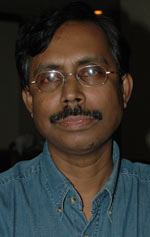 |
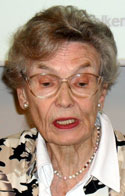 |
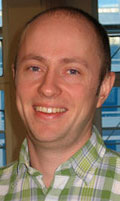 |
| Kazi Matin Ahmed | Malin Falkemark | Mattias von Brömssen |
 |
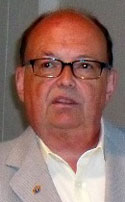 |
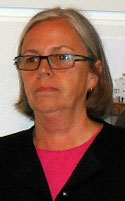 |
| Roger Herbert | Ulf Lindh | Ingegerd Rosborg |
The sector of dismantling of ships and ship repairing was discussed at length to illustrate how any dismantling or decommissioning activity has a potential of polluting marine and soil/sediment environment with toxic metals and other organic contaminants.
It was argued that technologies and management solutions including policies were needed to address the threat of trace metal contamination at an international level to preserve the integrity of natural environment.
Speakers during the Seminar
– Prof. Malin Falkenmark,
Swedish International Water Institute, Stockholm
– Prof. Ulf Lindh,
Research in Metal Biology, Rudbeck
Laboratory, Uppsala University
– Associate Professor Roger Herbert,
Department of Earth Sciences, Uppsala University
– Prof. Prosun Bhattacharya,
KTH-International Groundwater Arsenic Research Group, Department of Land and Water Resources Engineering, Royal Institute of Technology (KTH), Stockholm
– Mr. Mattias von Brömssen,
Ramböll Sweden AB, Stockholm
– Prof. Kazi Matin Ahmed,
Department of Geology, University of Dhaka, Dhaka, Bangladesh; and
Visiting Professor, KTH, Linnaeus-Palme Academic Exchange Programme
– Dr. Ingegerd Rosborg,
Cost Action 637, KTH, Sweden
– Prof. Shyam R. Asolekar,
CESE, Indian Institute Technology Bombay, India
– Dr. Michael Åbacka,
BCDE GROUP Waste Management Ltd Oy
Worth noting is that the KTH workshop was posted at the official web site
of the United Nations Environmental Program, see
http://www.unep.org/wed/2010/english/activities/
SASNET - Swedish South Asian Studies Network/Lund
University
Address: Scheelevägen 15 D, SE-223 70 Lund, Sweden
Phone: +46 46 222 73 40
Webmaster: Lars Eklund
Last updated
2010-06-23
